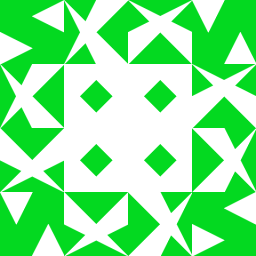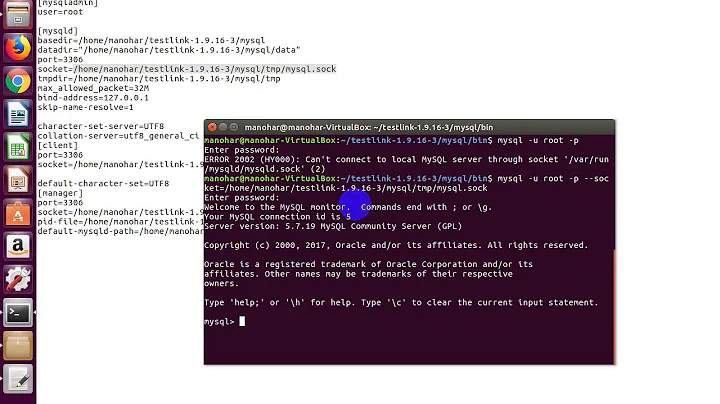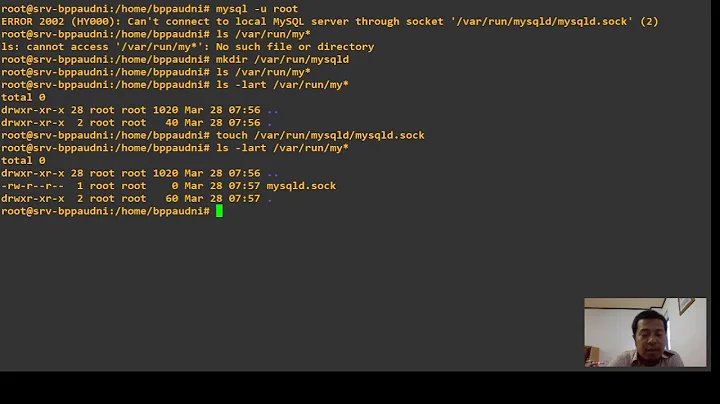Trying to Recursively match numbers in 2 hard-coded arrays, unable to go further than 1 successful cycle
36
I don't think recursion is the correct method for solving this task. Using two for-loops instead seems a better solution. Like:
for(i=0; i<6, ++i)
for(j=0; j<6, ++j)
if (nuts[i] == bolts[j])
{
// print …
}
}
}
Anyway - if you really want recursion for this task it could look like:
#include <stdio.h>
#define NUM_ELEMENTS 6
void recurMatch(int nuts[], int nuts_pos, int bolts[], int bolts_pos);
int main() {
int nuts[NUM_ELEMENTS] = {4, 7, 9, 8, 2, 5};
int bolts[NUM_ELEMENTS] = {5, 2, 9, 9, 7, 4};
printf("Let's clean up this Storage Chest...\n");
recurMatch(nuts, 0, bolts, 0);
return 0;
}
void recurMatch(int nuts[], int nuts_pos, int bolts[], int bolts_pos)
{
if (nuts_pos == NUM_ELEMENTS)
return; // All done - just return
if (bolts_pos == NUM_ELEMENTS)
return recurMatch(nuts, nuts_pos+1, bolts, 0); // Next nuts element
if (nuts[nuts_pos] == bolts[bolts_pos]) // Check current elements
{
printf("Nut Size-'%d' found in Nut-Drawer #%d, is equal"
" to Bolt Size-%d found in Bolt-Drawer #%d.\n",
nuts[nuts_pos], nuts_pos, bolts[bolts_pos], bolts_pos);
}
return recurMatch(nuts, nuts_pos, bolts, bolts_pos+1); // Next bolts element
}
Output:
Let's clean up this Storage Chest...
Nut Size-'4' found in Nut-Drawer #0, is equal to Bolt Size-4 found in Bolt-Drawer #5.
Nut Size-'7' found in Nut-Drawer #1, is equal to Bolt Size-7 found in Bolt-Drawer #4.
Nut Size-'9' found in Nut-Drawer #2, is equal to Bolt Size-9 found in Bolt-Drawer #2.
Nut Size-'9' found in Nut-Drawer #2, is equal to Bolt Size-9 found in Bolt-Drawer #3.
Nut Size-'2' found in Nut-Drawer #4, is equal to Bolt Size-2 found in Bolt-Drawer #1.
Nut Size-'5' found in Nut-Drawer #5, is equal to Bolt Size-5 found in Bolt-Drawer #0.
Related videos on Youtube
Author by
J Ben
Updated on December 07, 2022Comments
-
J Ben 16 days
I'm trying to recursively create a call that cycles through all the elements in the arrays, and compares each element to the other. Similar to sorting without actually altering the arrays, just pretending to using print statements.
Here's what I have:
#include <stdio.h> // Send each pair of array indexes to a recursive // Function that compares the values received and returns // if a corresponding 'index' (will be named drawer within storage chest) matches, // "A match was found for nut 7' and bolt 7' in drawers 2 and 2." void recurMatch(int nuts[], int bolts[], int position); int main() { int nuts[6] = {4, 7, 9, 8, 2, 5}; int bolts[6] = {5, 2, 9, 9, 7, 4}; printf("Let's clean up this Storage Chest...\n"); recurMatch(nuts, bolts, 0); return 0; } void recurMatch(int nuts[], int bolts[], int position) { int i, j; for (i = 0, j = 0; nuts[i] <= 6; ++i, ++j) { //printf("Position is %d\n", position); ++position; //printf("Nuts #%d is: Size-%d\n", i + 1, nuts[i]); //printf("Bolts #%d is: Size-%d\n\n", j + 1, bolts[j]); if (nuts[i] == bolts[j]) { printf("Nut Size-'%d' found in Nut-Drawer #%d, is equal to Bolt Size-%d found in Bolt-Drawer #%d.\n", nuts[i], i + 1, bolts[j], position); //nuts[i] = nuts[i + 1]; position = 1; //i; //return recurMatch(nuts, bolts, position); //recurMatch(nuts + 1, bolts, 0); } else { return recurMatch(nuts, bolts + 1, position); } } }The output:
Let's clean up this Storage Chest... Nut Size-'4' found in Nut-Drawer #1, is equal to Bolt Size-4 found in Bolt-Drawer #6.Which is correct, but how do I continue this process (recursively) until it gets through all 6 nuts with its proper pair?
Thank you for any help.
-
 thinice over 9 yearsps -waux |grep -i 'mysqld' - is it running already?
thinice over 9 yearsps -waux |grep -i 'mysqld' - is it running already? -
 TheFiddlerWins over 9 yearsPlease post your my.conf
TheFiddlerWins over 9 yearsPlease post your my.conf -
AngryWombat over 9 yearswe need to see your my.conf, almost sounds like mysql user can't create files to expected locations, i.e. socket file
-
 Support Ukraine about 4 yearsWhy do you want to use recursion for this problem?
Support Ukraine about 4 yearsWhy do you want to use recursion for this problem? -
 Stephan Lechner about 4 yearsWhat's the purpose of
Stephan Lechner about 4 yearsWhat's the purpose ofnuts[i] <= 6? Did you meani<=6? -
J Ben about 4 years@StephanLechner my bad, it was just something I was testing. It was originally i <=6
-
 Support Ukraine about 4 years@JBen Even
Support Ukraine about 4 years@JBen Eveni <= 6would be wrong. It should bei < 6
-
-
J Ben about 4 yearsThanks, I'm just having a hard time learning the basics of recursion.
-
 Support Ukraine about 4 years@JBen Recursion is pretty difficult so don't worry. One of the basic things in recursion is the stop condition, i.e. when shall you stop calling the function again. In this case there are kind of like two stop conditions. 1) When
Support Ukraine about 4 years@JBen Recursion is pretty difficult so don't worry. One of the basic things in recursion is the stop condition, i.e. when shall you stop calling the function again. In this case there are kind of like two stop conditions. 1) Whennuts_posreach 6 (i.e. all done) and 2) whenbolts_posreach 6 (i.e. done with current nuts element). Anyway - when dealing with recursion always start by considering the stop condition. -
J Ben about 4 yearsI'll remember that. Makes it a lot clearer when I can apply the principles to things I've worked on.
![Can't connect to mysql server [solution] error 2003, 'localhost'(10061) from MySQL Workbench](vi/GBGDoh1H0aQ/hq720_sqp--oaymwEcCNAFEJQDSFXyq4qpAw4IARUAAIhCGAFwAcABBg---rs-AOn4CLA0kd7IcfTr8gBd2OoBn8h6HSNMog.jpg)

